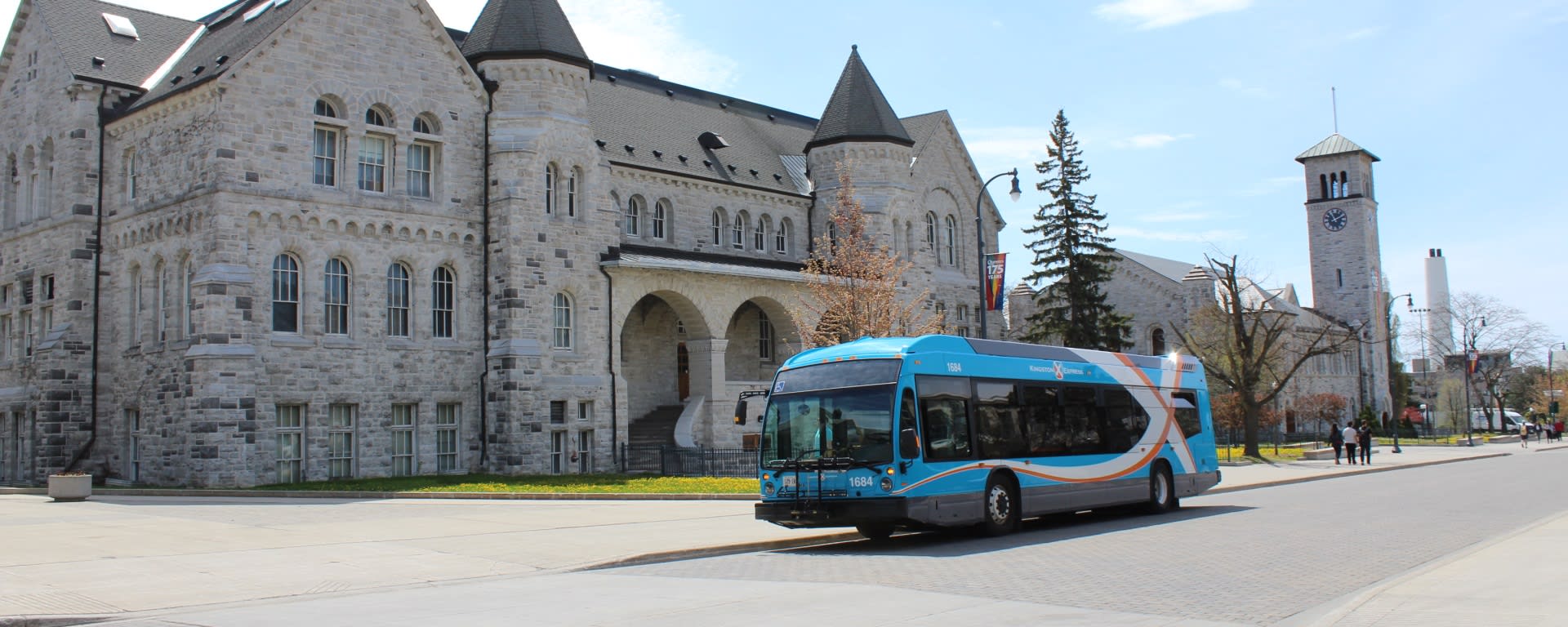Moving towards a future with battery electric bus transit fleets
Metrolinx is helping Ontario transit agencies start transitioning to battery electric buses.
Apr 26, 2022
For local transit agencies to deliver on the promise of green technology, it will take more than just good intentions.
Each one must have a plan – not just to buy zero emission buses, but also to retrofit their garages.
That’s why, on behalf of 13 agencies, Metrolinx has contracted with HDR, an engineering, architecture and consulting firm. Each agency will receive a customized report outlining a plan to prepare their fleet for conventional battery electric city buses.
This will open the door for local transit agencies to go beyond small pilot projects and start working towards electrifying entire fleets. Each agency will need to make significant investments in charging equipment to prepare their garages for this new propulsion system.
“Buying one or two buses is no problem, but as you transition to a full fleet of battery electric buses, you have to make changes to your operations and your garage,” said Yolanda da Silva, Manager of the Transit Procurement Initiative (TPI) at Metrolinx.
“You have to think about details like your service schedule, charging strategy and the power grid.”
This is a whole new challenge for transit agencies and each one will need a plan. Consulting work, customized for each community, will be completed by HDR staff working out of its office in Richmond Hill.
The 13 participating municipalities are Barrie, Belleville, Chatham-Kent, Cobourg, Collingwood, Greater Sudbury, Kingston, Milton, Orangeville, Sault Ste. Marie, Stratford, Thunder Bay and Windsor.
A GOVA bus in Sudbury, one of the participating transit agencies. (Greater Sudbury photo)
“An analysis has to be done at each of these depots to make sure the agencies are properly prepared to go from diesel to battery electric operations,” said Kristy Mlakar, Senior Project Lead for TPI.
“The key planning and financial component of the study will be understanding the work that transit agencies are going to have to do to retrofit their garages and install charging systems for all of the buses.”
Shared federal, provincial and municipal funding will be used by some agencies, such as the Government of Canada’s Zero Emission Transit Fund and Investing in Canada Infrastructure Program.
Metrolinx led the development and execution of the contract, on behalf of the 13 local agencies. Separately, GO continues to test two zero emission, battery electric, double-decker buses, in a pilot project.
Typically, the TPI team works with transit agencies to help them buy buses and transit-related goods with the benefits of bulk pricing, procurement efficiency and shared expertise. This is the first example of TPI working with agencies to select a vendor for a consulting study.
In the months ahead, TPI will work with transit agencies to assess the next stage towards the purchase of battery electric buses and charging systems that will best serve the needs of interested municipalities across Ontario.
Working together under the leadership of TPI is helping transit agencies to execute quality contracts faster.
Kingston Transit has two battery electric buses and it is preparing to decarbonize its entre fleet by no later than 2040. (Kingston Transit photo)
“We simply didn’t have the resources in place to move ahead on a project like this on our own, without the support of TPI to guide us so that we could award the contract in a relatively short period of time,” said Jeremy DaCosta, Director of Transit Services for the City of Kingston.
“Having TPI be able to attract bids from across the marketplace, under a competitive process with the opportunity to look at multiple proposals helped us to select the best one,” said DaCosta.
DaCosta sees this as a first step in meeting the City of Kingston’s goal of having a decarbonized fleet no later than 2040.
“We will ultimately end up with a plan that is Kingston’s plan – designed and built in a common way across all transit agencies, but very specific to what Kingston’s needs are,” DaCosta said, noting that all 13 agencies will receive customized documents.
Kingston Transit currently uses this charging station for its two battery electric buses.(Kingston Transit photo)
Kingston already has two electric buses and DaCosta is looking forward to securing more after the report is completed.
“We will have a very clear path forward for continuing down the path of electrification,” he said.
The City of Greater Sudbury is also using this study as a step towards municipal targets for electrifying their transit and City fleets.
“GOVA Transit looks forward to continuing to collaborate with TPI and begin work with HDR toward the electrification of municipal transit,” said Brendan Adair, Director of Transit Services for the City of Greater Sudbury.
“This comprehensive review will help ensure we are positioned to meet the goals of the City’s Community Energy and Emissions Plan (CEEP) to electrify 100 per cent of transit and City fleet by 2035,” said Adair.
by Mike Winterburn Metrolinx communications senior advisor
